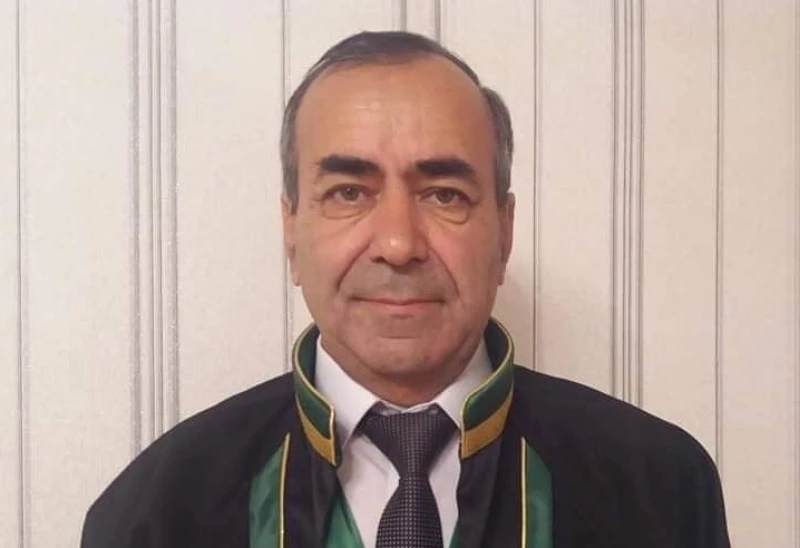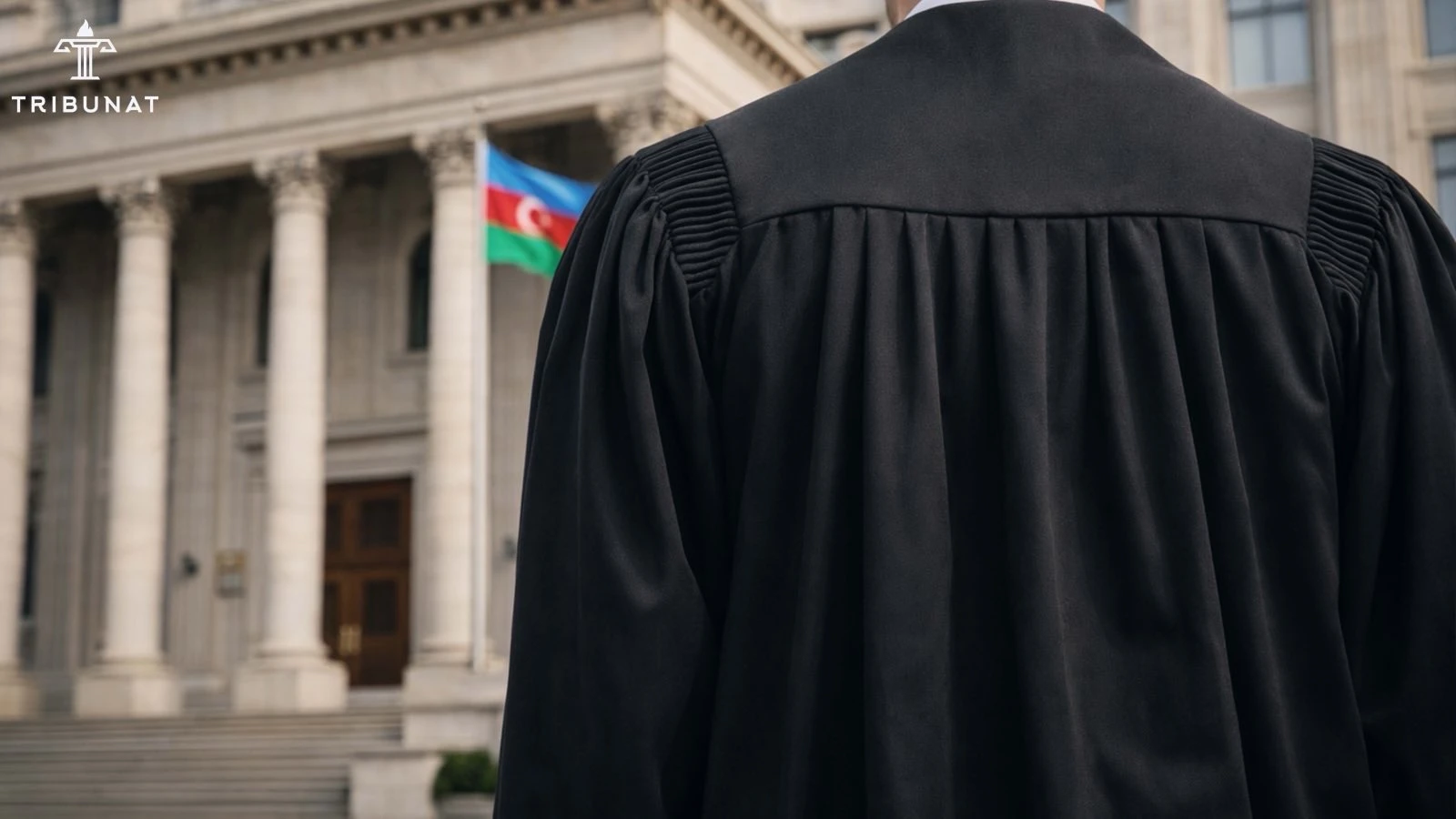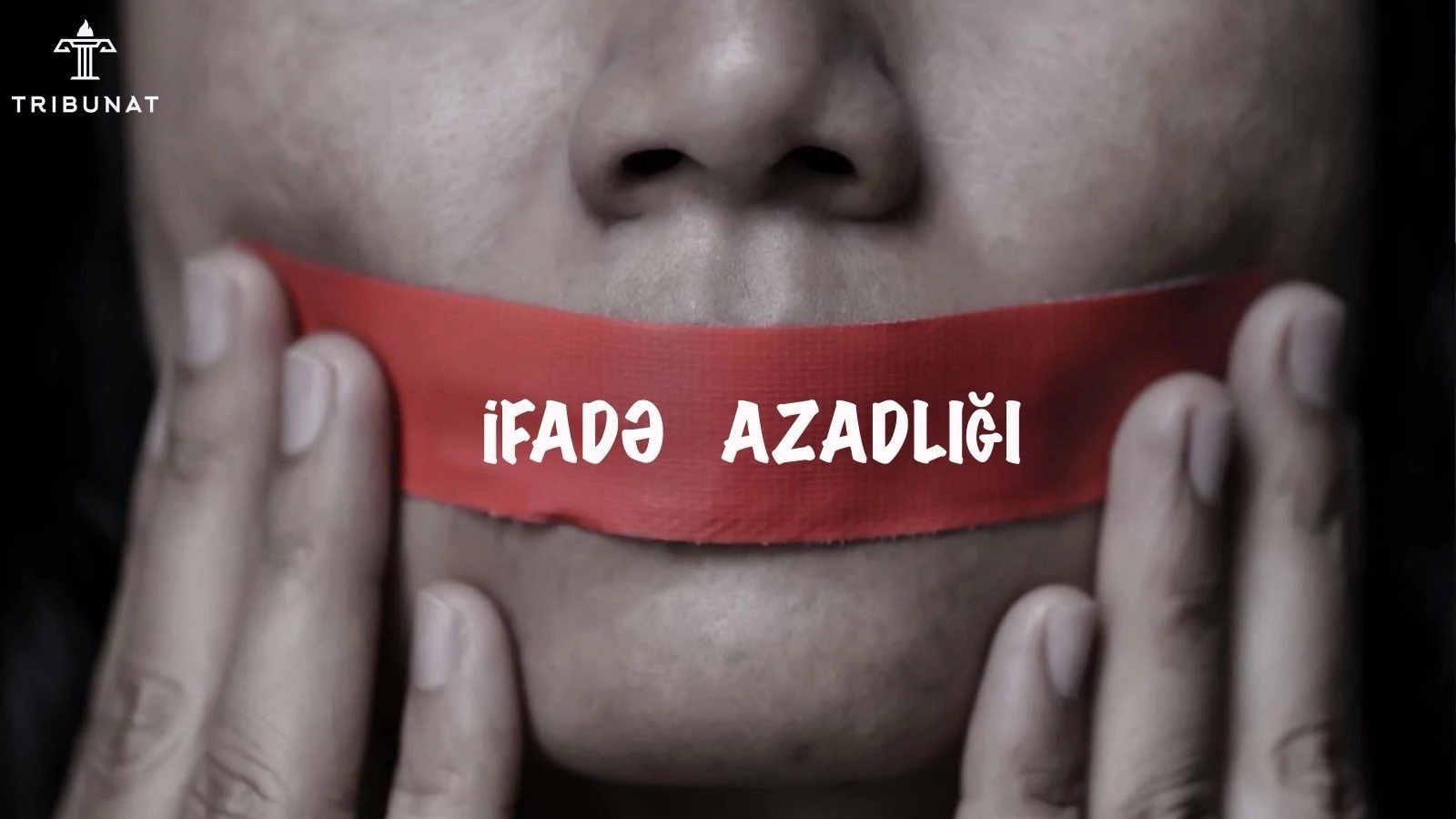On October 15, 2024, a hearing was held regarding the criminal case of public activist Mohiyyedin Orucov. During the session, Orucov’s lawyer, Nazim Musayev, read a letter he had written to the chairman of the Baku Court on Grave Crimesregarding the violation of his client's rights. The lawyer also expressed his objection to M. Orucov being held in a glass cage – referred to as an "aquarium."
Judges interpreted the lawyer's use of the term “aquarium” as both “contempt of court” and as “humiliation” of the defendant, prompting them to file a complaint with the Bar Association against him.
“The Tribunat” analyzed the issue.
According to Article 289 of the Criminal Code, insulting participants in a court hearing constitutes disrespect to the court, resulting in criminal liability. The first clause of the article stipulates that the offense can be punished with a fine ranging from five hundred to one thousand manat, or community service of three hundred twenty to four hundred hours, or imprisonment for up to six months. If the actions are directed against a judge, the punishment increases to a fine of one thousand to one thousand five hundred manat, or correctional labor for up to two years, or imprisonment for up to six months (Article 289.2).
So, can the expression “aquarium” used by lawyer Nazim Musayev be considered disrespect to the court or a humiliation of the accused?
The scientific-practical commentary on the Criminal Code notes that disrespect to the court is expressed through a specific method – insult. In other words, for the criminal composition to occur under that article, a negative value judgment must be given to the personality of a participant in the court hearing in an indecent manner, degrading their honor and dignity. Insulting can take both verbal forms and acts directed against the participant in the court hearing.
In the explanatory dictionary of the Azerbaijani language, “aquarium” refers to “a glass container for keeping and breeding aquatic animals and plants” or “an institution where aquatic animals and plants are kept for research or display purposes.”
However, the term “aquarium” is also commonly used in court hearings to refer to glass cages (cabinets) where defendants are kept. This expression appears in court cases or decisions and legal articles. For instance, in the precedent set by the European Court of Human Rights (ECHR) in the case of Maria Alekhina and Others v. Russia (Application no. 38004/12), it was noted: “ Throughout the trial they were held in an enclosed dock with glass walls and a tight-fitting door, which was commonly known as an “aquarium”” (see paragraph 32 of the decision).
In another ruling – in the case of Malai v. Moldova (Application no. 7101/06) – both the applicant and the Government used the term “aquarium” when presenting their arguments regarding the detention place (See: § 8, § 31, and §32).
Moreover, in those decisions, the ECHR recognized the detention of defendants in such glass cages in courtroom settings as a violation of the right not to be subjected to ill-treatment.
In general, the detention of an accused not only in glass cages but also in metal cages has been recognized as a violation within the jurisdiction of the European Court.
In the case of Natiq Jafarov against Azerbaijan (Application no. 64581/16), the Court stated that “the applicant’s confinement in a metal cage during the appeal hearing concerning his pre-trial detention amounted to degrading treatment” (see § 40).
As it appears, both the interpretation of Article 289 of the Criminal Code and the broadly used meaning of the word “aquarium” in legal sources and court decisions exclude the possibility of Nazim Musayev's speech being classified as contempt ofthe court.
Furthermore, the mere conclusion of the court panel at the Baku Court on Grave Crimes Court, along with the decision to address a complaint regarding contempt of the court to the Bar Association, raises questions about the very body itself.
It is known that the investigative authority regarding Article 289 of the Criminal Code was entrusted to the Ministry of Justice by a presidential decree dated August 25, 2000. Thus, a complaint about the lawyer should have been sent to the mentioned ministry's investigative department for an investigation in accordance with the requirements of that document.
However, the submission of a complaint regarding Nazim Musayev's alleged disrespect to the court to the Bar Association, which is the body of which he is a member, serves the intention of subjecting him to disciplinary responsibility and disciplinary action, in other words, to punishment.
Since the Bar Association's Disciplinary Commission is beyond its capacity to determine whether the alleged insult of the participants in the court hearing constitutes disrespect to the court, any opinion that would establish grounds for its disciplinary responsibility appears to be inherently invalid
Since it is beyond the capacity of the Bar Association's Disciplinary Commission to independently determine whether the alleged words constitute contempt of court by insulting participants in the court hearing, any opinion it may express that could ground disciplinary responsibility appears invalid from the outset.
In this sense, the broader context of the issue is closely related to the freedom of expression of lawyers and the chilling effect on defense.
Article 47.1 of the Constitution of Azerbaijan establishes the freedom of thought and expression for everyone. Both this and Article 10 of the European Convention on Human Rights protect the freedom of expression of lawyers.
In the case of Khalid Bagirov v. Azerbaijan (Application no. 81024/12 and 28198/15), the International Commission of Jurists stated as a third party that “in some States legal proceedings for protection of human rights may be unavailable or ineffective and, in such circumstances, for lawyers to be effective in protecting the rights of their clients they may need to engage in activity, which may include statements or other forms of expression, that takes place outside of the strict confines of judicial proceedings.” (see § 50).
In that decision, the Court found a violation of the applicant's freedom of expression as a lawyer. Furthermore, the Court noted in its precedent that “ in assessing the proportionality of the interference, the nature and severity of the penalties imposed are also factors to be taken into account (see Mor,§ 61, and Morice, § 175) and it has already found that the disbarment cannot but be regarded as a harsh sanction, capable of having a chilling effect on the performance by lawyers of their duties as defence counsel (see Igor Kabanov, §§ 55 and 57) (see: § 83).
In the decision regarding the case of Namazov v. Azerbaijan (Application no. 74354/13), it was noted that “Whilst they (lawyers) are subject to restrictions on their professional conduct, which must be discreet, honest and dignified, they also enjoy exclusive rights and privileges that may vary from one jurisdiction to another – among them, usually, a certain latitude regarding arguments used in court” (see: § 46).
In the case of Hajibeyli and Aliyev v. Azerbaijan (Application no. 6477/08 and 10414/08), the Court reiterated that “the freedom of expression of lawyers is related to the independence of the legal profession, which is crucial for the effective functioning of the fair administration of justice”(see: § 60).
The rights that a lawyer has while conducting their profession are regulated by Article 15 of the Law on “Lawyers and Legal Practice.” According to the second clause, second paragraph of Article 15, the lawyer has the right to use all methods and means in their activities that are not prohibited by legislation and are not contrary to legal ethics.
Thus, according to the conclusion reached by “The Tribunat,” the local court's classification of the use of the word “aquarium” in Nazim Musayev's speech as contempt of the court is regarded as an interference with his right to freedom of expression as a lawyer, as well as serving to create a chilling effect in more effectively protecting the rights of the defendant.






